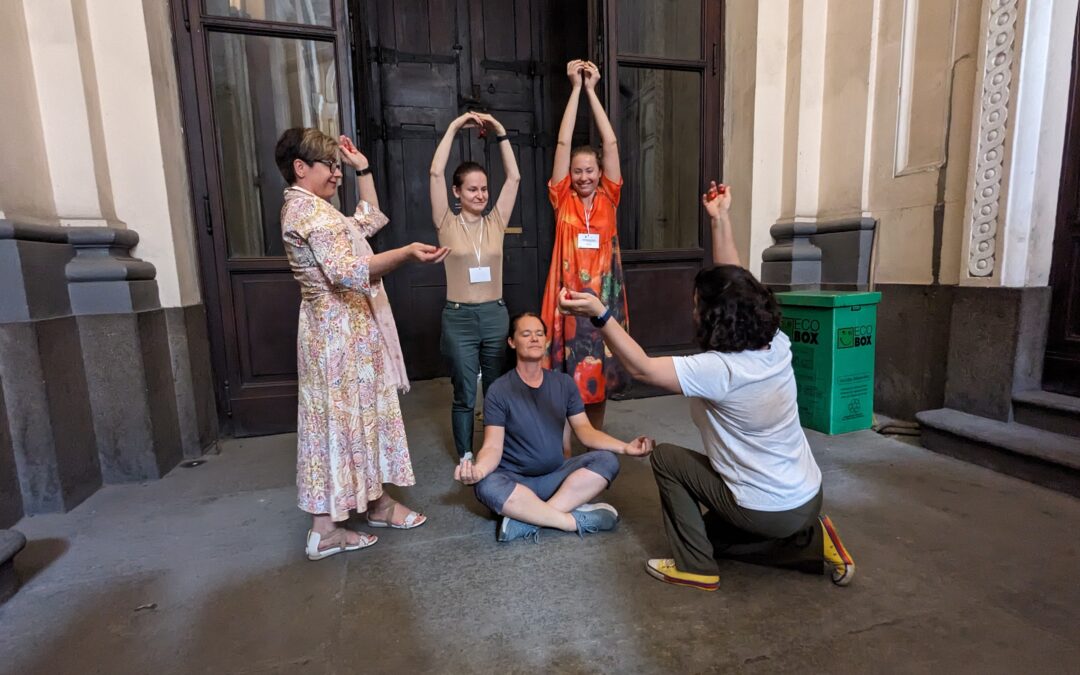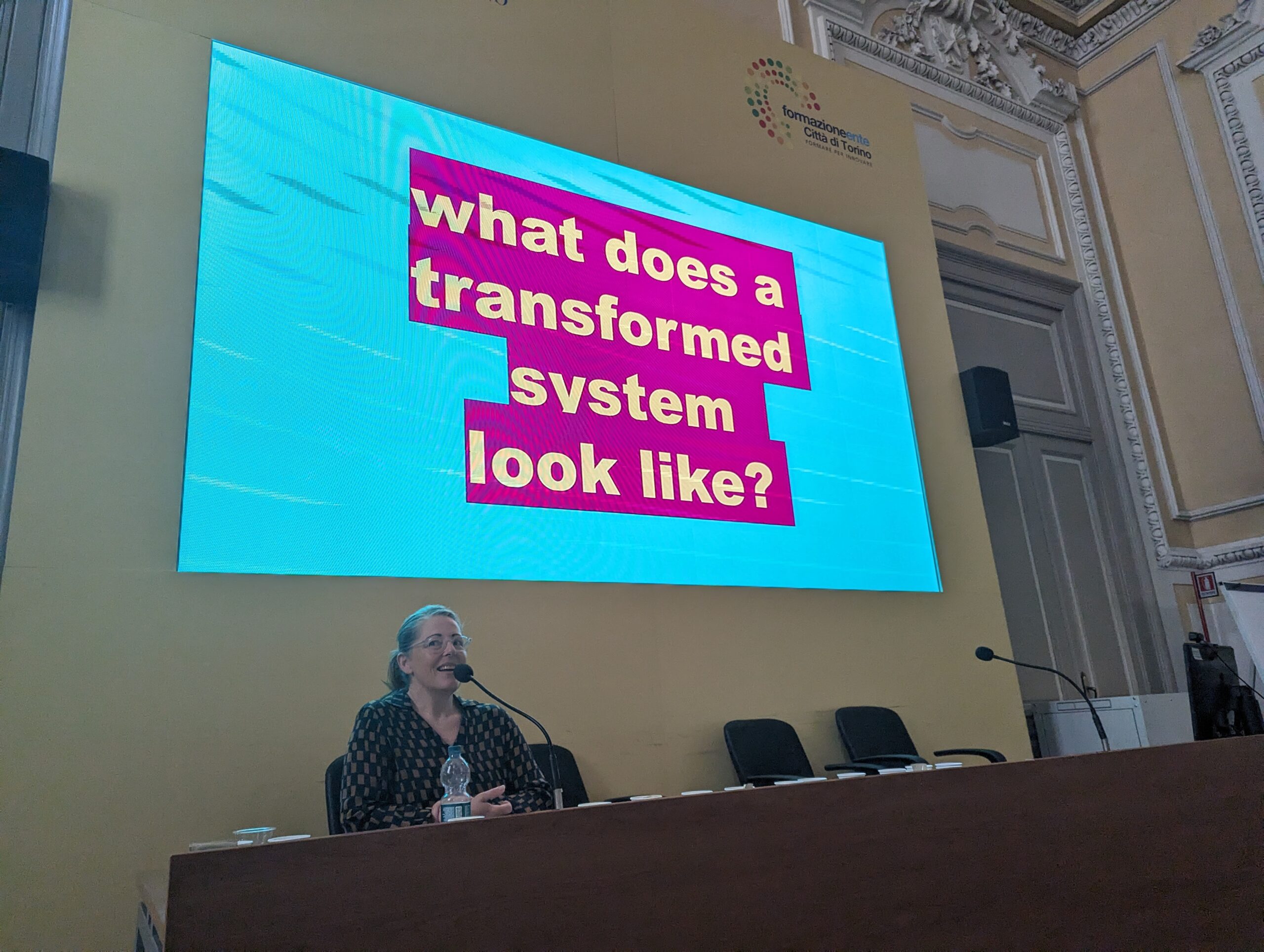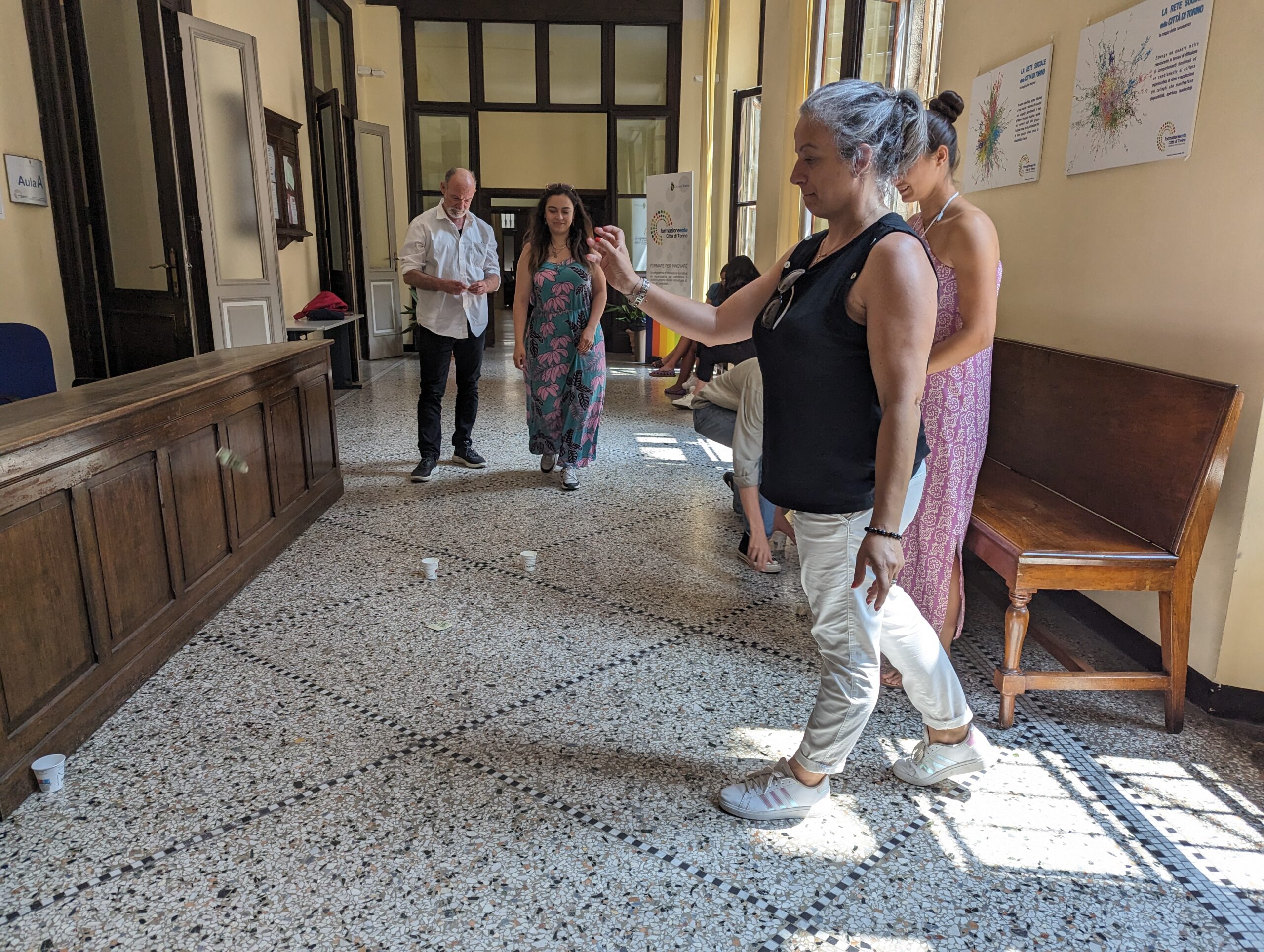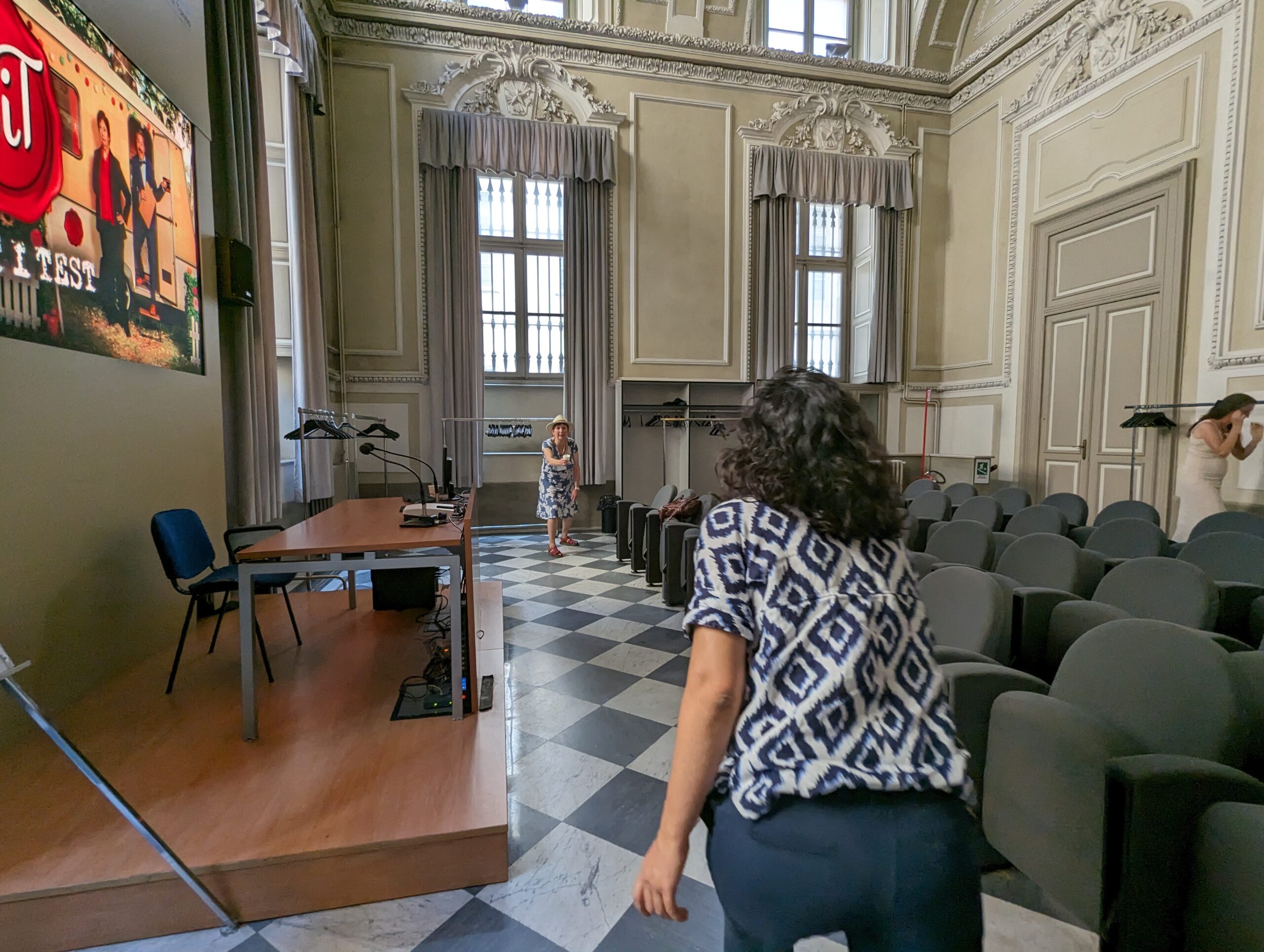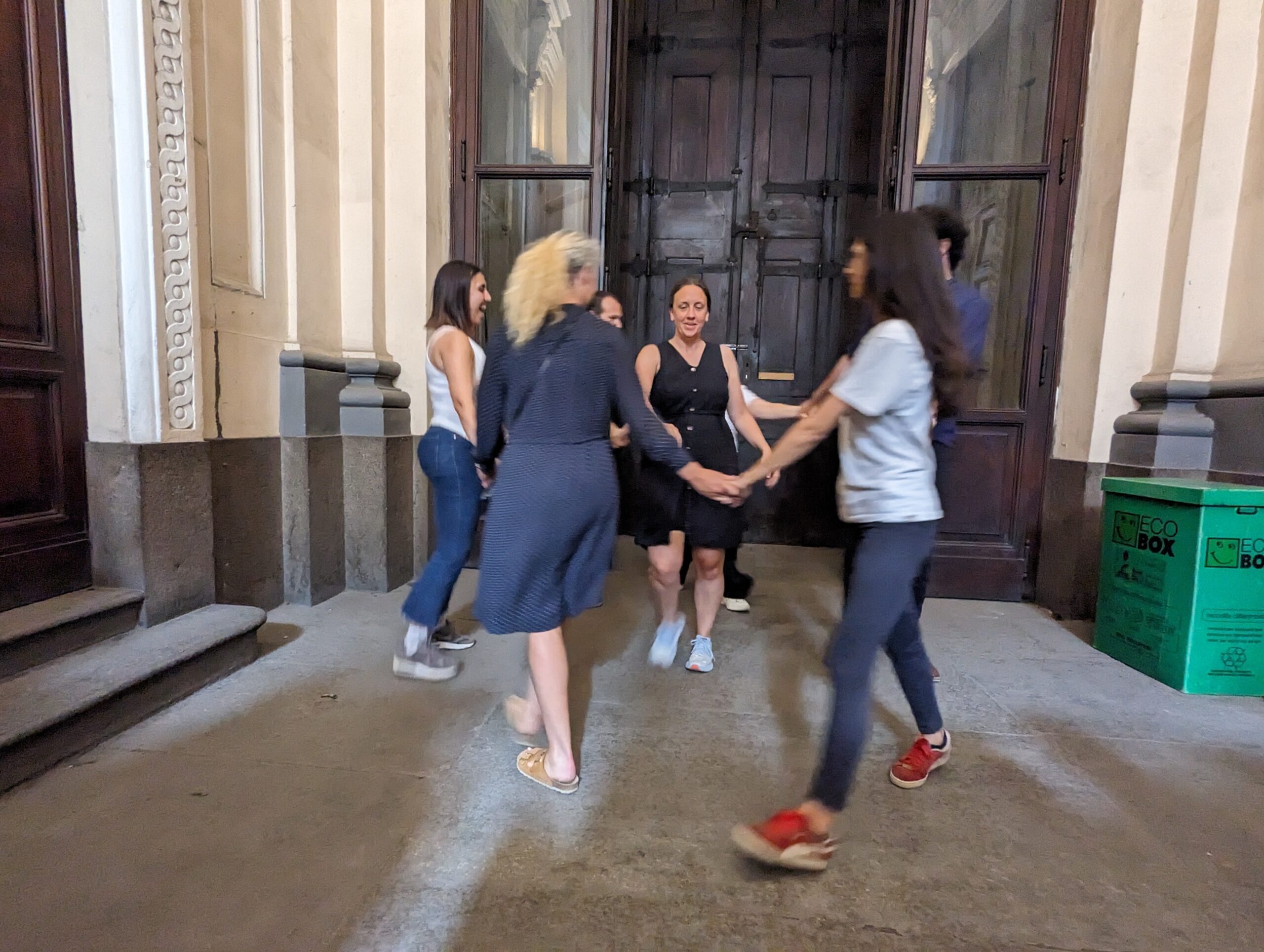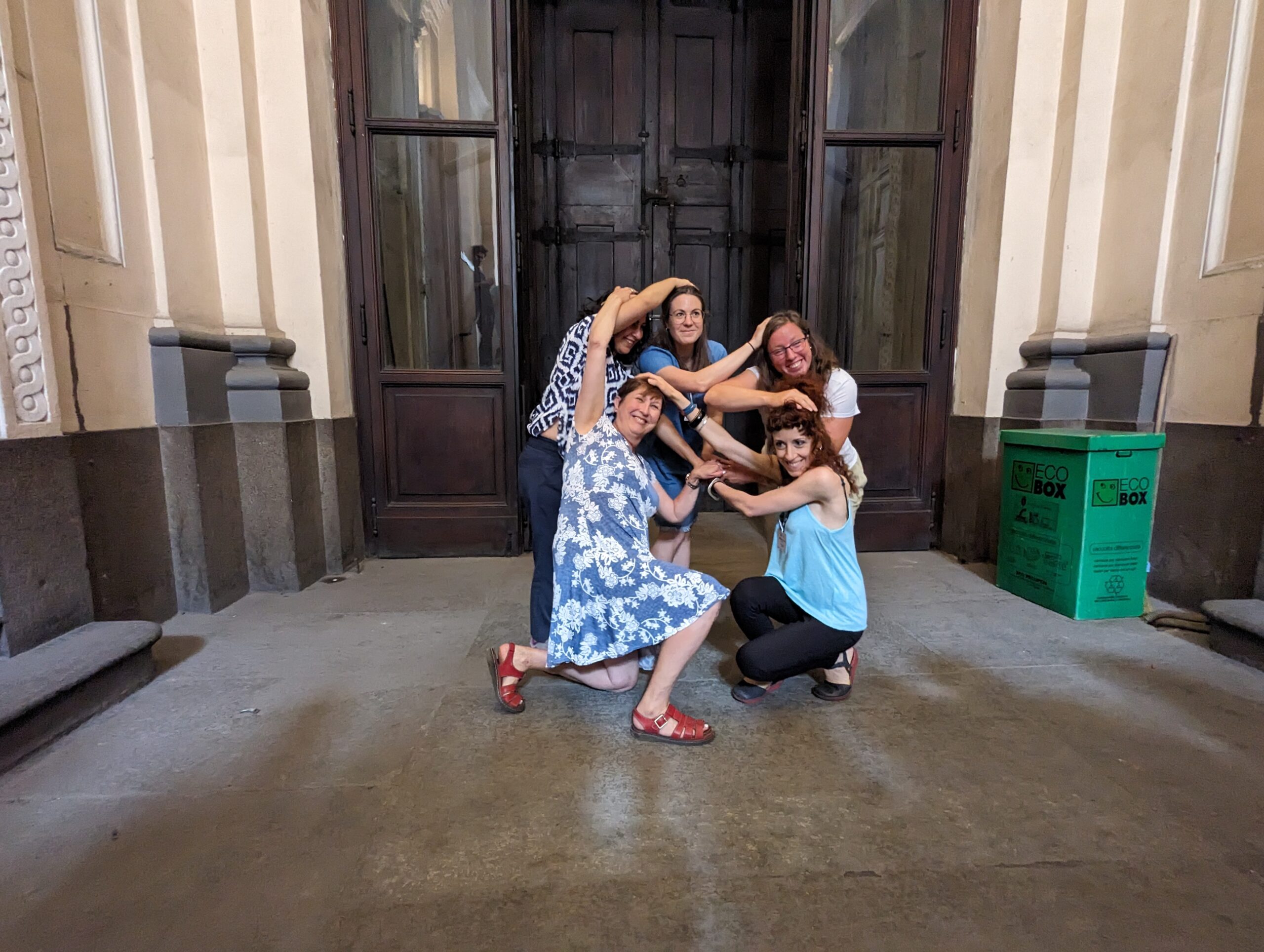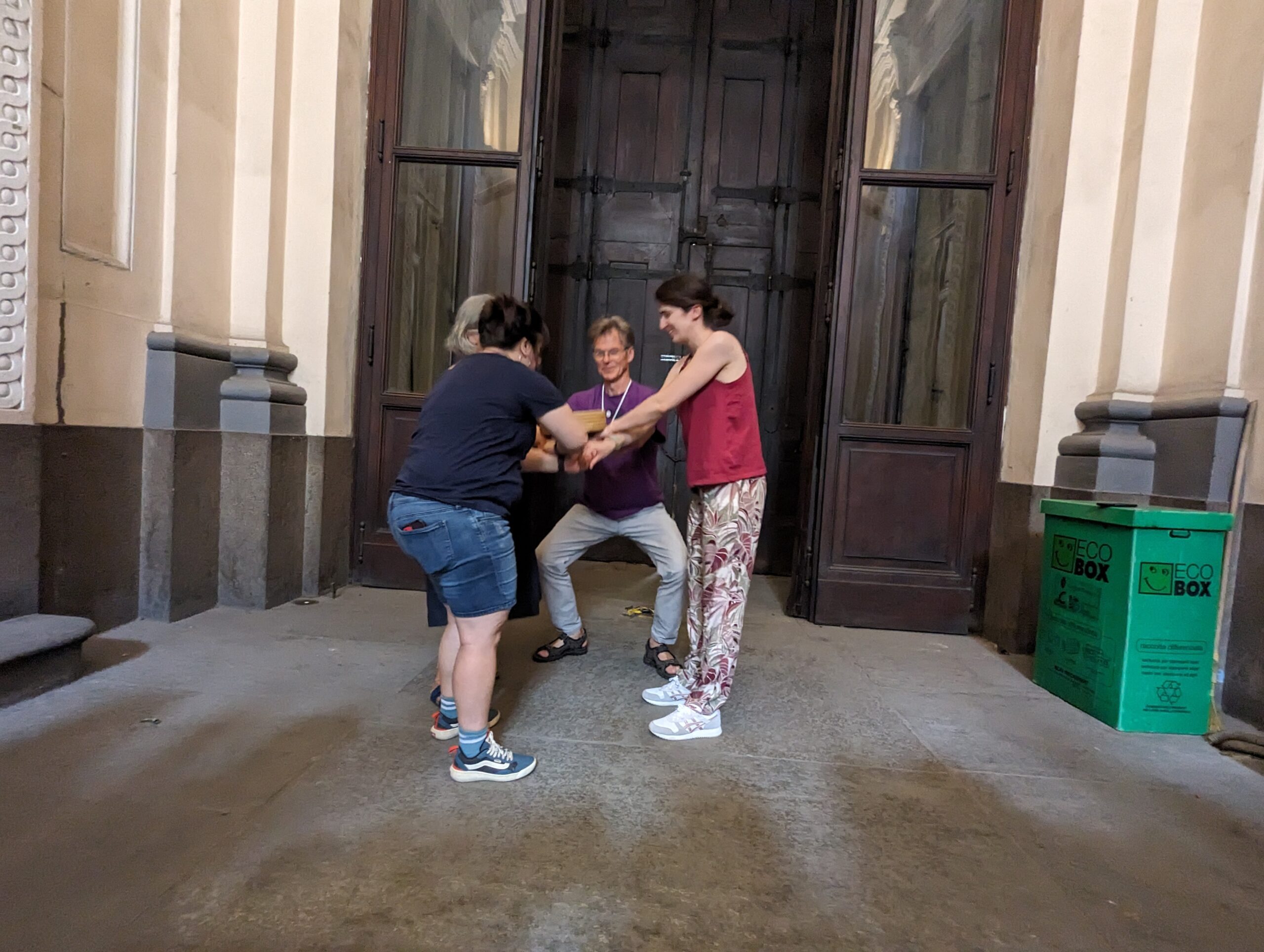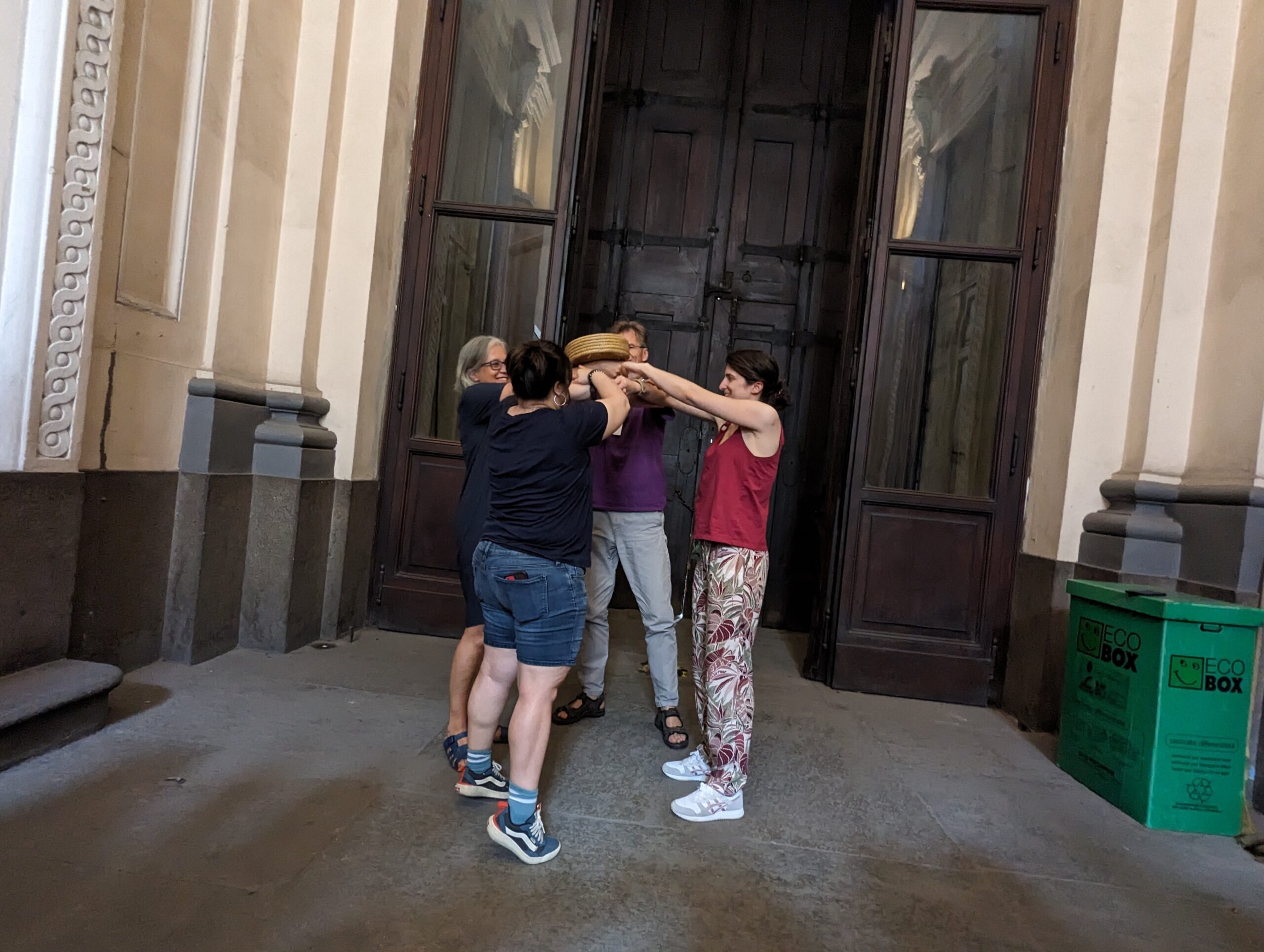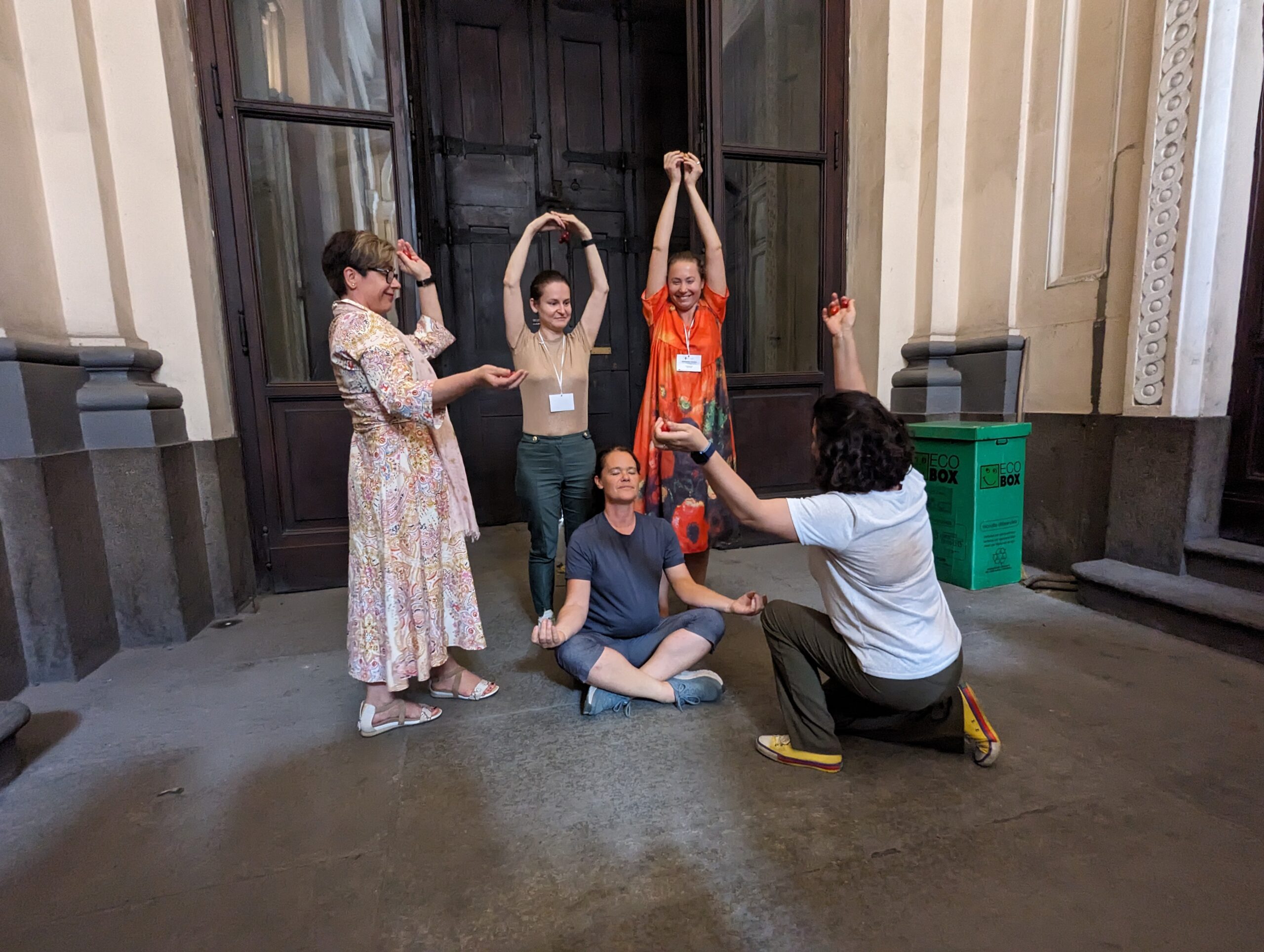The FUSILLI project is, if anything, ambitious. While in some cities, sustainable food was already on the policy agenda, in many cities this was not the case. The FUSILI Living Lab coordinators thus play an important, and often pioneering role.
In such a position, facilitating a learning process for Living Lab coordinators is key, which is something that I and the other researchers in the project do. Over the last months, we were noticing that the more the project developed, the more knitty gritty the work in FUSILLI has become. Many Living Labs have started implementing their planned activities, e.g. launching food educational programs, piloting food waste kitchens, or supporting farmers’ cooperatives. Combined with the sometimes demanding work of documenting and monitoring ongoing work while managing stakeholder relations, we felt there was little space left to continuously reflect on the bigger picture: where are we transitioning to?
For this reason, we organized a workshop during the project meeting in Turin centered around this question. After a warm up exercise taken from a Swedish game show, we moved to a workshop format called ‘image theater‘. It challenges people to come up with a still (or slightly moving) ‘image’ that they perform, as actors on stage, to depict a key concept. We introduced the exercise by transporting the participants to a future, utopian food system scenario in 2050, in which the work of the FUSILLI project among others has been successful. Then, we formed five groups that were given concepts loosely relating to different domains in the food system: sharing, soil, waste, decision-making, transport. We asked the groups: what does your concept look like in the utopian scenario of 2050?
After 10 minutes of pressured preparations, the groups came together to perform their image, and the audience could react (“beautiful!”; “I see collaboration here”; “it looks like very transparent decision-making”; “the soil is fertile!”). As facilitator, this was a moving moment. The workshop helped to get Living Lab coordinators, and project researchers, ‘out of their thinking heads’, and into a playful space in which the day-to-day struggles and concerns of the project could be left behind. Especially in such an international project context, we feel it is important to give space to embodied experience, imagination and the personal connections to the work done.
Check out our gallery to see the workshop results. Can you guess which food system dimension our participants are displaying?
